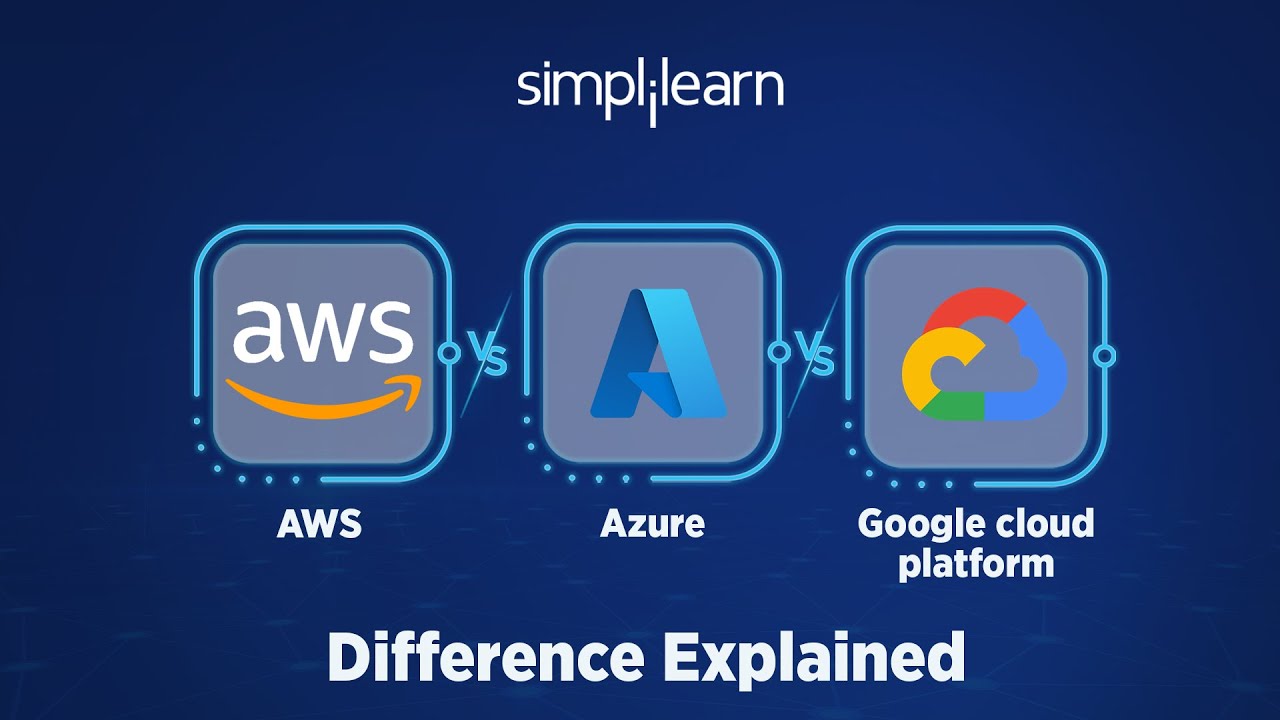AWS In 10 Minutes | AWS Tutorial For Beginners | AWS Cloud Computing For Beginners | Simplilearn
Summary
TLDRThis video offers a concise overview of Amazon Web Services (AWS), a leading global cloud platform utilized by nearly 80% of Fortune 500 companies. It highlights AWS's comprehensive range of services, including EC2 for server hosting, VPC for network creation, and S3 for storage, emphasizing its transparent billing, ease of use, and scalability. The video also touches on AWS's stability, cost-effectiveness with reserved instances and spot resources, and its expansive global presence with 15 regions. Finally, it discusses AWS's future focus on machine learning and software as a service, promising continuous cost reductions due to economies of scale.
Takeaways
- 🌐 AWS is a global cloud platform that hosts and manages internet services, utilized by nearly 80% of Fortune 500 companies.
- 🛠️ AWS provides a range of services including Infrastructure as a Service (IaaS), Platform as a Service (PaaS), and Software as a Service (SaaS).
- 💰 AWS's billing is transparent with per-hour rates and micro-billing for services like EC2 instances and S3 storage on a per-GB basis.
- 🔑 The sign-up process for AWS is straightforward, requiring only an email ID and credit card, facilitating quick access to services.
- 🔩 AWS's services are considered stable and reliable, with region-specific outages being rare and short-lived.
- 🖥️ EC2 is the most commonly used AWS service, offering scalable and customizable virtual servers.
- 🌐 VPC allows users to create private networks within AWS's cloud infrastructure for added security and control.
- 🗂️ S3 is a widely used service for file storage and sharing, providing scalable storage solutions.
- 🔄 RDS enables the management of relational databases in the cloud, supporting various database engines.
- 🌐 Route 53 is a managed DNS service that offers global scalability to meet fluctuating demand.
- 🔄 ELB and Auto Scaling services work together to distribute traffic and dynamically adjust capacity to maintain application availability.
- 💰 AWS pricing varies by region, with Virginia being the most cost-effective, and offers discounts for long-term commitments and spot instances.
- 🌟 AWS continues to expand its service offerings, with a current focus on machine learning and reducing costs due to economies of scale.
Q & A
What is Amazon Web Services (AWS)?
-Amazon Web Services (AWS) is a global cloud platform that allows individuals and companies to host and manage services on the internet. It provides a range of services including infrastructure, platform, and software as a service.
Why is AWS popular among businesses?
-AWS is popular due to its clear and transparent per-hour billing, ease of sign-up process, quick deployment of services without the need for hardware, and its stable and trusted service offerings.
What are the different types of services provided by AWS?
-AWS offers infrastructure as a service (IaaS) like bare servers, platform as a service (PaaS) with support for various programming languages, and software as a service (SaaS) like email sending capabilities and queuing services.
How does AWS's billing system work?
-AWS has a micro-billing system where customers are charged per hour for each service used, including EC2 instances and S3 storage on a per GB basis.
What is the significance of the sign-up process for AWS services?
-The sign-up process for AWS is straightforward, requiring only an email ID and a credit card, allowing users to quickly launch and manage their cloud services.
How does AWS ensure the stability of its services?
-AWS services are considered stable with only a few region-specific outages in the past years, lasting no more than a few hours and not affecting all customers.
What are some of the most commonly used AWS services?
-Some of the most commonly used AWS services include EC2 for virtual servers, VPC for virtual private clouds, S3 for storage, RDS for relational databases, Route 53 for DNS, and ELB for load balancing.
How does AWS pricing vary by region?
-AWS pricing is region-specific, with some regions like Oregon and Virginia being the cheapest due to being close to AWS's headquarters. Pricing can also vary based on the term of service commitment.
What is a 'spot instance' in AWS and how does it work?
-A spot instance is a type of AWS service where users bid for compute capacity at a price they nominate. The downside is that the instance may be terminated if someone else bids a higher price.
How big is AWS in terms of global reach and data center size?
-AWS has a global footprint with 15 regions across major countries and multiple availability zones within each region, housing massive data centers with up to half a million servers.
What is the future direction of AWS in terms of services and focus areas?
-AWS is expanding its services, currently offering 64 different services, and is focusing on machine learning and software as a service. They are also committed to reducing costs as they scale up.
Outlines

This section is available to paid users only. Please upgrade to access this part.
Upgrade NowMindmap

This section is available to paid users only. Please upgrade to access this part.
Upgrade NowKeywords

This section is available to paid users only. Please upgrade to access this part.
Upgrade NowHighlights

This section is available to paid users only. Please upgrade to access this part.
Upgrade NowTranscripts

This section is available to paid users only. Please upgrade to access this part.
Upgrade NowBrowse More Related Video

AWS vs Azure vs GCP | Amazon Web Services vs Microsoft Azure vs Google Cloud Platform | Simplilearn

AWS vs Azure | AWS vs Azure Comparison | Difference Between AWS And Azure | Simplilearn

Apa itu cloud computing ?

24 MOST Popular AWS Services - Explained in 13 mins (2024)

Cloud Providers Compared: A Comprehensive Guide to AWS, Azure, and GCP

Cloud Computing Explained
5.0 / 5 (0 votes)